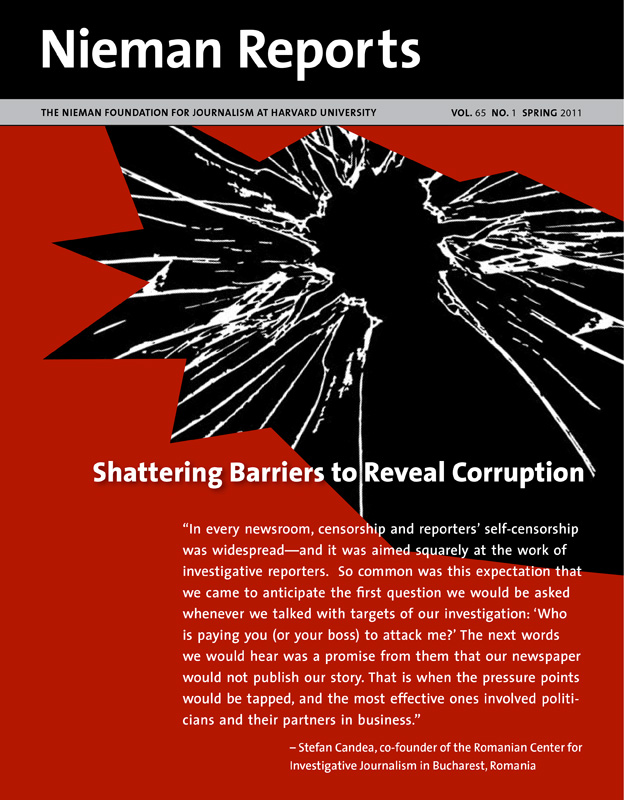The intertwined, global array of media assistance funders and implementers has become almost too complex to describe. RELATED ARTICLE
“Questioning the Western Approach to Training”Money comes from international organizations (e.g., the World Bank, Unesco, U.N. Development Program), foundations (John S. and James L. Knight, Open Society, Eurasia, Ford, John D. and Catherine T. MacArthur) and national development agencies (USAID and its counterparts in Sweden, Denmark and the United Kingdom). Some organizations such as the International Research & Exchanges Board (IREX) get money from funders and invite project proposals from trainer-implementers. Internews and the BBC World Service Trust are more likely to do both of these elements themselves. The Organization for Security and Co-operation in Europe‘s (OSCE) representative on freedom of the media monitors the Caucasus and Central Asia for conformity to Western media standards, holds instructional conferences, and issues prescriptive reports.
RELATED LINK
Resources for Investigative ReportersThe Center for International Media Assistance (CIMA), founded with U.S. State Department money at the National Endowment for Democracy in Washington, D.C., has become a central node in this network, producing numerous studies, hosting events, celebrating “media visionaries,” and advocating the view that the “professional skills of journalists are probably the most-recognized measure of media quality.” The World Journalism Education Council involves 29 academic organizations that have met twice to address common issues. Unesco has published “a generic model” of journalism education curricula, and then there is a Global Forum for Media Development that claims a membership of 500 nongovernmental organizations operating in 100 countries. Its current chair is the president of the International Center for Journalists (ICFJ), which is funded mainly by U.S. foundations and the U.S. government. It produces newsletters, sends working journalists into the field, arranges exchanges of U.S. journalists and foreign journalists, publishes how-to manuals, and offers online instruction.
James Miller is visiting professor at the Center for the Study of Global Media and Democracy at Goldsmiths, University of London, and professor of communications at Hampshire College. His writing on media assistance includes the chapter “Retelling the News in Central Europe: Western Journalism as Democratic Discourse” in the book “Nationalist Myths and Modern Media,” published in 2005 by Tauris, and “NGOs and ‘Modernization’ and ‘Democratization’ of Media,” published in the journal Global Media and Communication in 2009.


